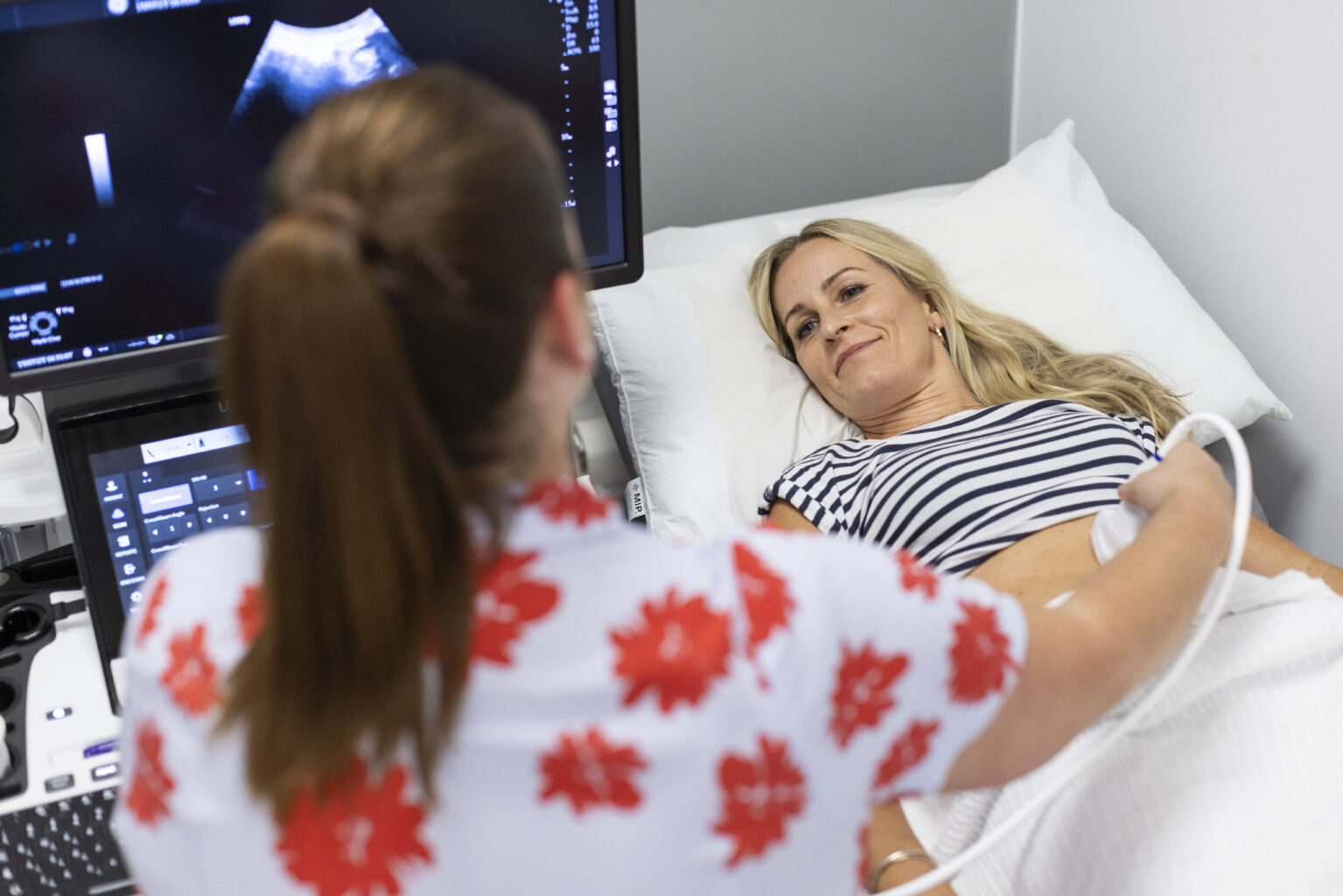Contact number: 020 7806 4060
What is a FibroScan?
A FibroScan is a quick and painless non-invasive scan, which can be used to measure and track changes in your liver health.
This simple ten minute scan will spot any potential damage or disease and give you a readout of any liver damage and your liver fat levels. This means you will leave your appointment with all the information you need about your liver, and if needed, guidance for how to live the healthiest lifestyle possible.
Private Fibroscan at St John & St Elizabeth Hospital
At our hospital, uniquely, your scan will be performed by a specialist consultant rather than a technician, so you will receive the added benefit of expert knowledge and advice following the scan, as well as your results straight away.
Why would you need a Fibroscan?
FibroScan is for everyone, whether you’re worried your lifestyle might be having a negative impact on your health or you just want to have a routine scan to stay on top of your liver health. If you have other conditions, such as high blood pressure; diabetes, which can affect the amount of fat stored in your liver; or colitis, which can predispose you to liver disease, having a FibroScan can be a very useful test and help you manage your health simply and effectively. You don’t need a GP to refer you, so if you’d like a scan, simply give us a call and we’ll book you in.
Quick, simple and risk-free, a FibroScan can identify early signs of liver damage that would otherwise go unnoticed, so you can reverse it.
How Much Does A Private Fibroscan Cost?
£650
Private FibroScan costs £650 at St John & St Elizabeth Hospital.
The price shown includes all costs associated with your treatment, excluding your consultant’s fee.
Our hospital fee is guaranteed at the price quoted and valid for one month from the date issued, subject to pre-assessment.
How to pay for your treatment
If you’re… paying for yourself
Did you know you don’t need private medical insurance to come to St John & St Elizabeth Hospital? As a self-pay patient, you can access safe, outstanding quality health care at times to suit you.
For scans and tests, as well as to see most consultants, you’ll still need to be referred by a medical professional like your GP, but as a self-pay patient, the process is more straightforward. You won’t need authorisation from an insurance provider, and you’ll have greater choice of consultant and appointment times.
If you’re… insured
St John & St Elizabeth Hospital is approved by all major medical insurance companies. If you have a personal private health insurance policy, or your company provide it for you, you can use it to pay for your care from your initial consultation through to treatment, surgery and aftercare such as physiotherapy. Not all private health insurance plans cover the same things. It’s very important to check exactly what you are covered for with your insurance provider.
Frequently Asked Questions about Private Fibroscan
Before your FibroScan, you should keep taking any medications as usual. You must not eat or drink anything for at least three hours beforehand, although small sips of water or clear fluids are allowed—just avoid drinking large amounts. You won’t need to remove any clothes, but it’s best to wear a top and bottoms rather than a dress since the doctor will need to examine and scan your tummy. Jewellery, including belly bars, can be left on during the scan.
When you arrive at the hospital, you’ll go to the Outpatients Department where reception staff will sign you in. You’ll wait in the waiting room until a nurse calls you to your room. Your consultant will explain the scan process and answer any questions before starting. The scan takes place in the same room as your consultation.
For the scan, you’ll lie on your back on a couch and raise your right arm above your head. The doctor will feel your tummy to find the right spot to place a small handheld probe. This probe sends sound waves through your skin to your liver, which bounce back and feel like a gentle flick on your skin. The procedure is painless and repeated at least 10 times to ensure an accurate average reading. The entire scan takes no longer than 10 minutes.
Your results are available immediately after the scan. Your doctor will discuss them with you during the appointment and create a management plan so you’ll leave knowing the next steps, avoiding the need for another hospital visit.
If your scan shows a healthy liver, you’ll simply need to continue maintaining a healthy lifestyle and keep alcohol consumption low. You can have another scan anytime to monitor your progress, such as in 12 months or a few years. If the scan shows high liver fat but low stiffness, your doctor will recommend lifestyle changes like drinking less, increasing activity, and losing weight. If liver damage is detected, further tests will be arranged and a personalised medical management plan will be created for you.
- Stay active and incorporate exercise into your routine
- Cut down on your alcohol intake – this is a must for a healthy liver!
- If you’re overweight, try to lose weight. The NHS healthy weight calculator is a useful guide.
- If you’ve never had one, consider getting a hepatitis vaccine
- Have routine scans if you’re worried so you can stay on top of your health.
Medically reviewed by Professor Patrick Kennedy - MB BCH BAO BMEDSCI FRCP MD on 21/02/2024

